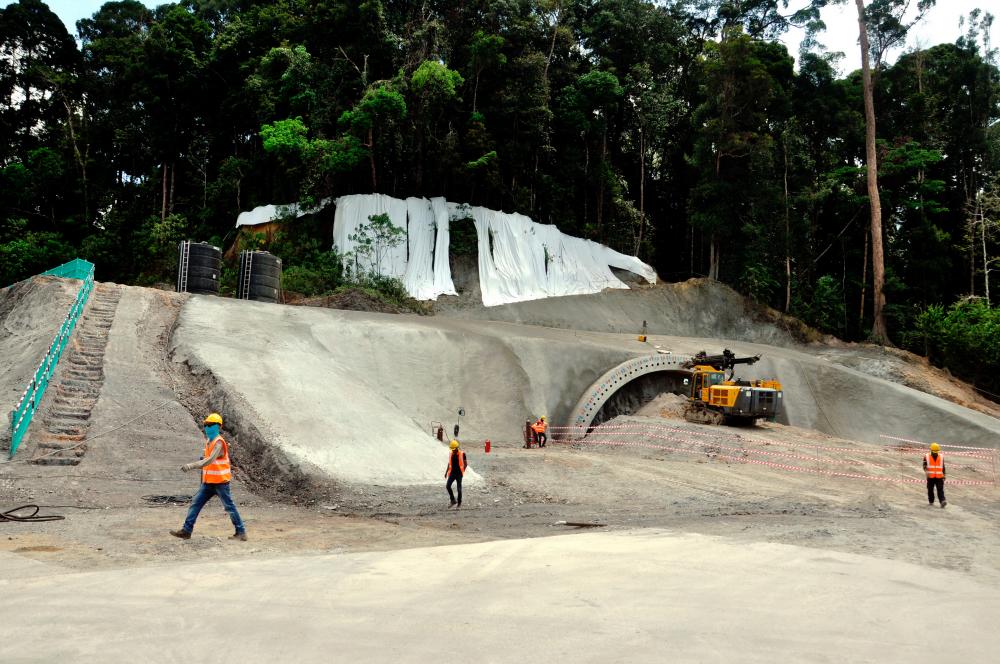PETALING JAYA: While the revival of the East Coast Rail Link (ECRL) is positive to both the construction and building material sectors, it is no game-changer to these industries, AmInvestment Bank said.
“We estimate that the additional demand for cement and steel bars only amount to 1–2% of the current annual consumption of cement and steel bars locally,“ it said in a report last Friday.
Given the government’s strong commitment to fiscal prudence, the research house is concerned that this could be a “zero-sum game” as the revival of the still massive ECRL may deprive the government of its ability to implement other infrastructure projects over the next four to five years.
“We believe the market has also very much priced in the news, given the strong run-up in share prices of construction stocks over the last one to two months. Also after the run-up, valuations of construction stocks have become excessive with weight average FY19-20 P/Es (price-to-earnings ratio) of 17.2 times and 16.3 times which are unjustified given the muted industry outlook,“ it explained.
AmInvestment Bank added that it is uncertain at this point what will be the extent of the local participation in the project or if there is any change from 30% previously.
“Given the sharply reduced project cost, in order to minimise the loss of profits, we are doubtful that if the Chinese contractor will offer substantial sub-contracting works to local players, and in the event it is required to do so, if it will offer high-value jobs (such as tunnelling and construction of large bridges) to local players.”
It maintained an “underweight” recommendation for the construction sector on the back of the continued cutback in public infrastructure spending as the government tightens its belt; the prolonged downturn in the property market with oversupply in virtually all segments comprising residential, commercial, office and retail; and the deterioration in cash flow along the entire value chain due to slow payment (or non-payment) by both public and private sector clients, whereby some of these receivables problems have escalated to defaults and contract disputes.
The total cost for the ECRL has been reduced by RM21.5 billion to RM44 billion from RM65.5 billion. Further details of the revised deal will be revealed tomorrow.












